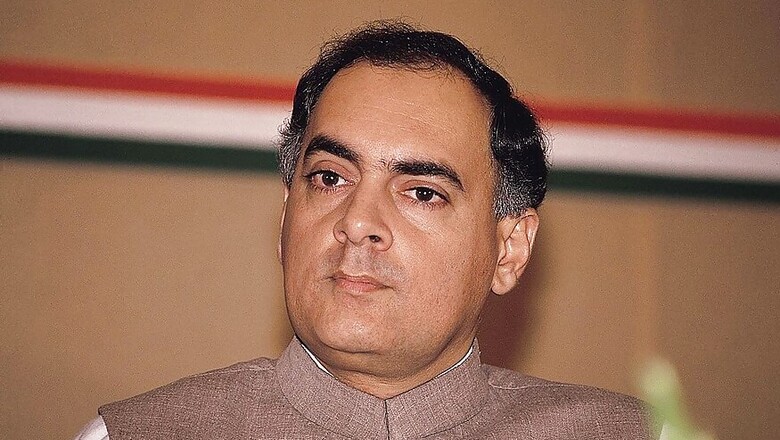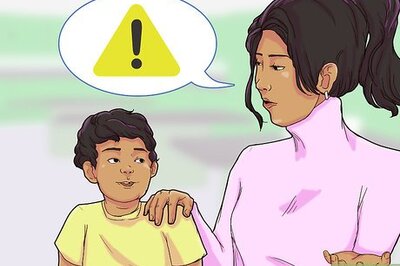
views
New Delhi: The biggest election victory in India — the 1984 general elections, in which Congress won 415 out of 523 seats — was the result of a collaboration between RSS and Congress, a book has claimed.
In his book 'Ballot: Ten Episodes that Shaped India's Democracy' published by Hachette India, Rasheed Kidwai has made a claim that shows the complexity of India's politics like no other anecdote perhaps can.
In the third chapter titled 'The Big tree And The Sapling', Kidwai starts with the assassination of then Prime Minister Indira Gandhi.
"As soon as Rajiv reached Delhi, PC Alexander, principal secretary to Indira, and other trusted aides told him that the Cabinet and the Congress party wanted him to be Prime Minister. Alexander said he had to make a determined bid to tear Rajiv away from Sonia at AIIMS. Sonia pleaded with Rajiv not to consent, but Rajiv believed that it was his duty to do so."
Rajiv Gandhi's most ambitious political phase thus begins. Elections are announced between 24 and 27 December 1984.
"Rajiv’s election campaign was aggressive and focused on making Sikhs seeking a separate homeland a key issue. The hidden agenda was to somehow exploit insecurity within the Hindu community and project the Rajiv-led Congress as their sole saviour."
He had travelled over 50,000 kilometres by car, helicopter, and aeroplane in 25 days of campaigning, Kidwai says in the book.
Riding on the wave of sympathy from his mother's assassination and looking to mine the Hindutva brand of politics as far as possible, Gandhi decides to set up a meeting with then sarsanghchalak of the Rashtriya Swayamsevak Sangh, Balasaheb Deoras.
"There were talks of a secret meeting between Rajiv Gandhi and Balasaheb Deoras, resulting in RSS cadre supporting the Congress during the 1984 Lok Sabha election, despite the presence of BJP in the political scene. The BJP, however, has denied any understanding between RSS and Congress under Rajiv Gandhi."
In the end, Kidwai writes, "The immense wave in favour of Rajiv... sees the party win 415 out of the 543 Lok Sabha seats, a tally that his mother and illustrious grandfather had both failed to achieve."
While Kidwai artfully puts together pieces of Rajiv's political career, the claim that he sought RSS’ cooperation to win the '84 polls has not been disputed by the Congress so far. What's more, it was even corroborated by a former Congress MP some time back.
Former Congress leader Banwarilal Purohit, who was then a Lok Sabha member of the party from Nagpur, has claimed to have played the role of mediator between Rajiv and Deoras.
Making this revelation back in 2007, Purohit reportedly said, "Since I belonged to Nagpur, Rajivji wondered if I knew then RSS chief Balasaheb Deoras. Upon hearing my ‘of course, very well’, he wanted to know my opinion on whether the RSS would support the Congress if Shilanyas (foundation) at Ram Janmabhoomi is permitted."
In his book, Kidwai makes another revelation — the RSS isn't averse to supporting a non-Congress, non-BJP party during elections.
In another chapter, on the rise of Shiv Sena founder and supremo Bal Thackeray, Kidwai writes how the Maratha right-wing party tasted its first electoral victory, despite all odds, thanks to the support of RSS.
"In September 1970, the Sena tasted its first significant victory, riding on support from the RSS. Krishna Desai, a communist MLA from Parel, a Bombay suburb, was murdered, necessitating a by-election. The Sena fielded Vaman Mahadik in the by-election, while the communists put the late Desai’s wife Sarojini in the fray. Nine political parties, including the Congress, supported Sarojini... but Sena won the seat, with RSS leader Moropant Pingale publicly appealing to the people to vote for the party."




















Comments
0 comment